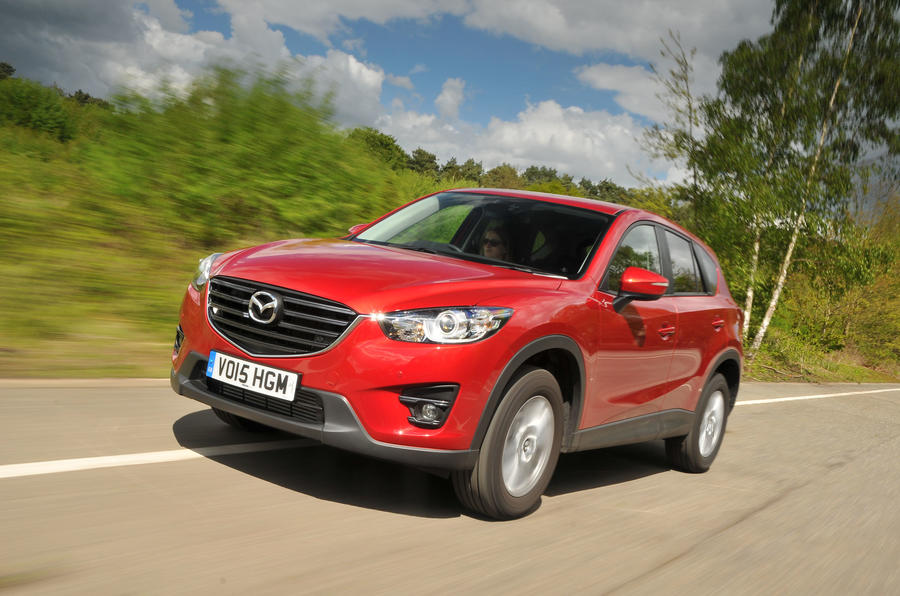All too often, when faced with a four-cylinder diesel engine and a reputable set of manufacturer’s economy figures, we’ve been underwhelmed by the experience on the ground. The Mazda CX-5 emphatically does not fall into that category.
It is a measure of the 148bhp 2.2-litre diesel’s performance that for a moment it appears briefly in the same sentence as the mighty 2.0-litre lump that helps to make the BMW 3 Series a five-star car when it first came out in 2012. A higher-power version of the same engine, which makes 173bhp and 309lb ft, impresses in isolation, but the effectiveness of the entry-level diesel brings its appeal into question.
In either of the diesel engines, there are three factors to highlight: outright speed, refinement and frugality. We clocked 9.4sec to 60mph in the low-power diesel, which is close to Mazda’s claims, but what sets it apart is its tractability and genuine sense of verve on the move. The turbo-heavy tug is lusty and assertive, and while its peak twist fades away, a healthy power band sees the engine into high revs with little reduction in enthusiasm.
The result is a fine set of figures. Not only does the 148bhp 2.2-litre CX-5 outperform the equivalent Kia Sportage across the board (50-70mph in sixth in 9.7sec compared with 12.2sec for the Kia is a standout figure), but within the confines of our one-mile straight it also pulled from beneath 20mph in fourth and up to 100mph without requiring a gearchange.

































